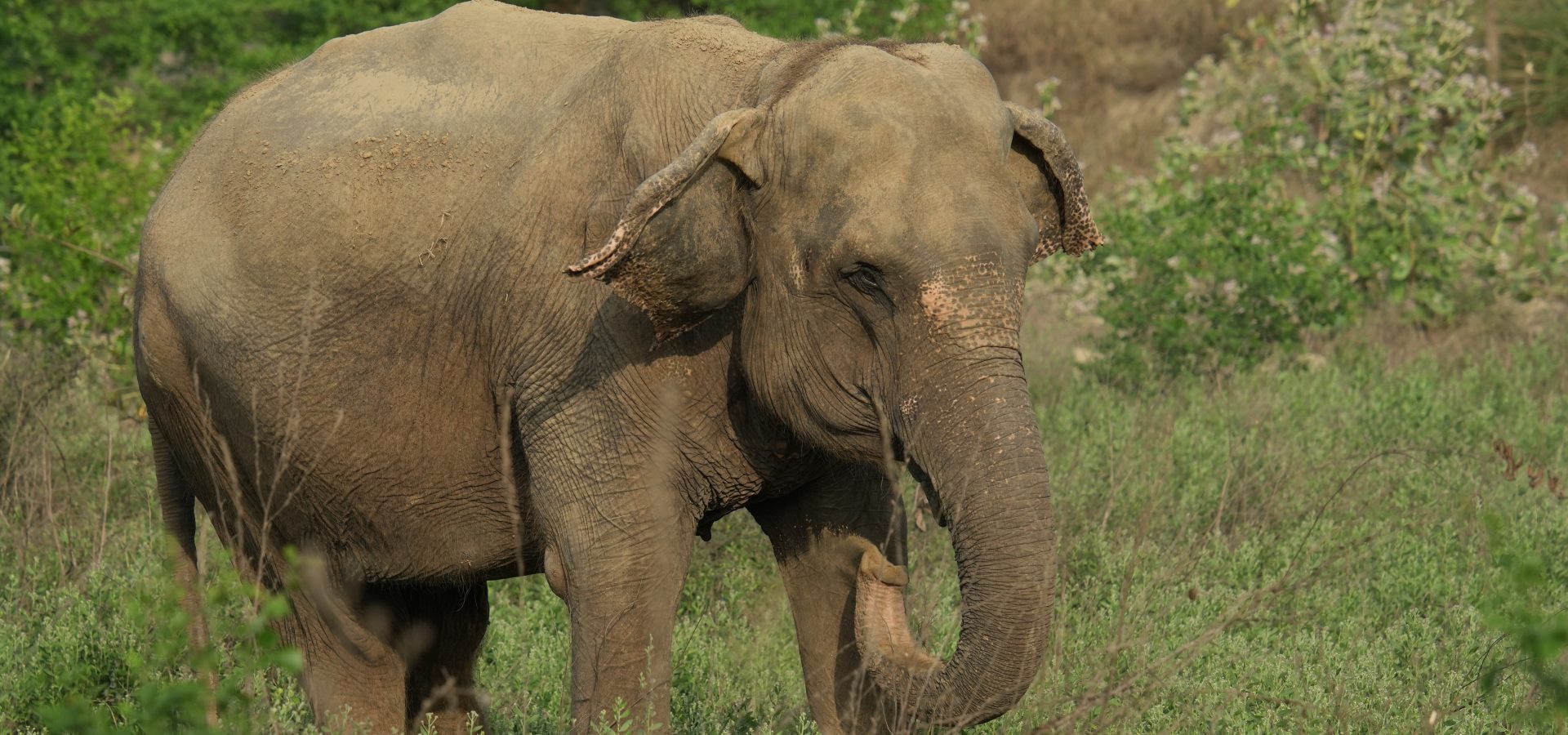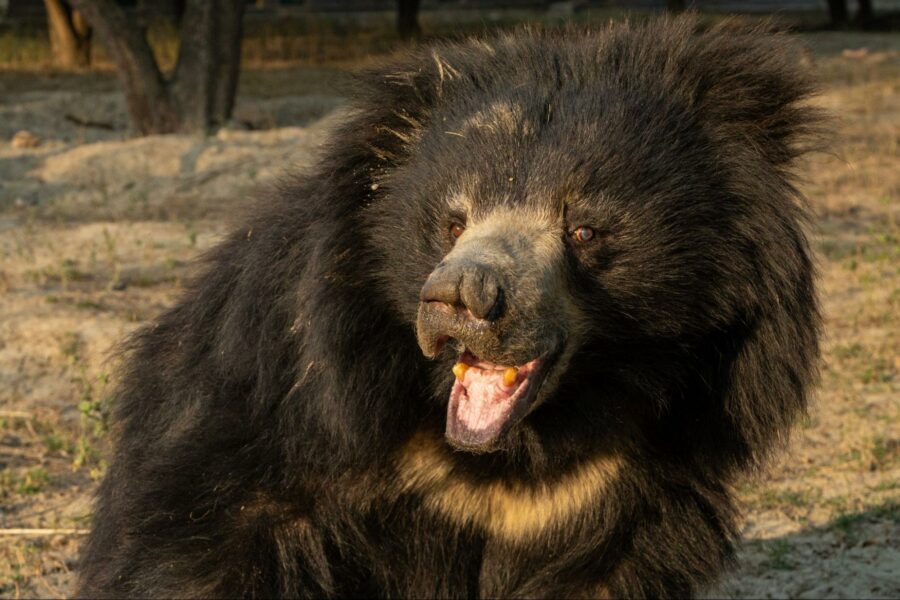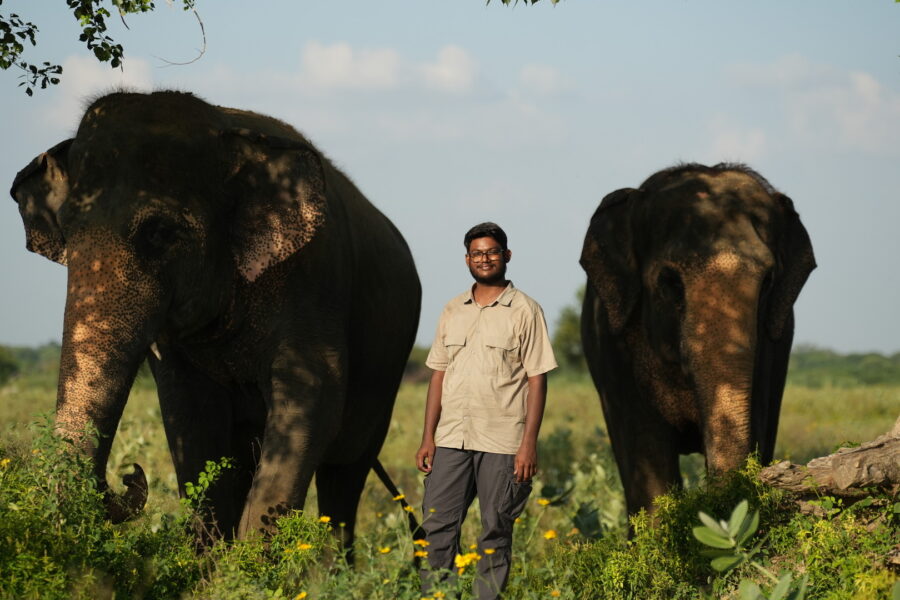Elephants, often regarded as majestic creatures, possess more than just their imposing size and graceful presence. These gentle giants also demonstrate an impressive array of cognitive abilities that continue to astonish researchers and wildlife enthusiasts alike. From their social structures to their exceptional memory and problem-solving skills, elephants stand out as some of the most intellectually advanced beings in the animal kingdom. Let’s delve into the fascinating cognitive abilities exhibited by elephants.
Social Intelligence
Elephants are highly social animals, living in tight-knit family groups called herds. Their social intelligence is outstanding, as they display empathy, cooperation, and an understanding of complex relationships. They hold the ability to recognise and remember individual elephants, even after long periods of separation.
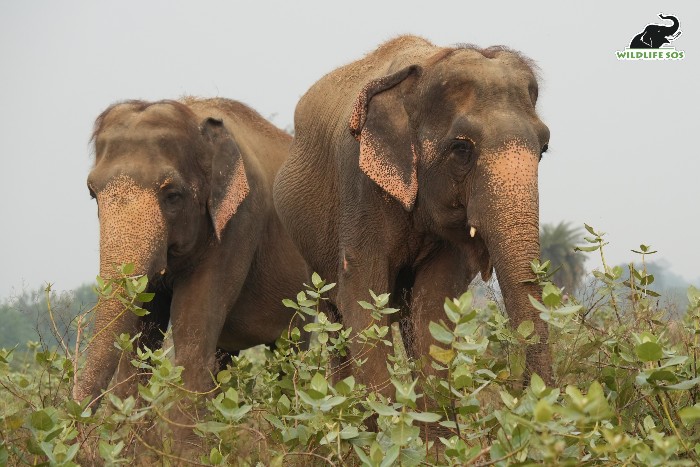
At Wildlife SOS Elephant Conservation and Care Centre (ECCC), we have witnessed recognition and communication skills of elephants. Rhea and Mia are two elephants that were rescued from the same circus, but Rhea had arrived at our centre six months after Mia. Despite being separated for half a year, the two instantly identified each other upon their reunion. They had sensed each other’s presence from a distance, and their joyful sounds and calls echoed through the air! A deep bond existed between the duo that shared memories of a traumatic past. This incident underscores an elephant’s capacity of having strong memory and forming long-lasting social connections.
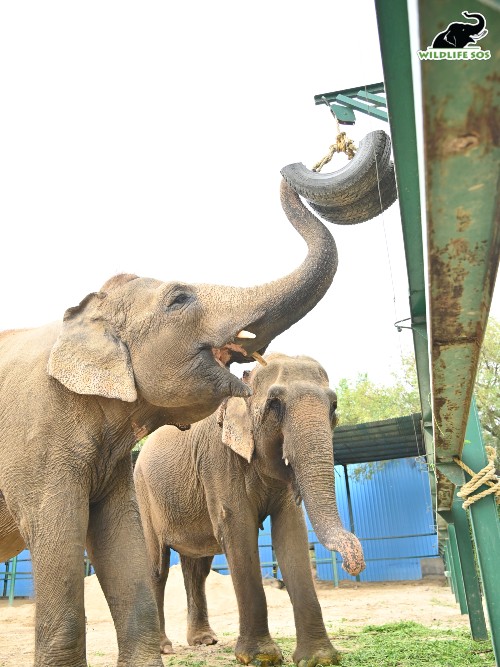
Extraordinary Memory
One of the most renowned cognitive abilities of elephants is their long-term memory. They have an impressive recall of geographic locations, water sources, and migration routes that can span vast distances. Their memory allows them to navigate and find resources essential for their survival. Furthermore, elephants can remember specific individuals within their species and across different species, which contributes to their social dynamics and interactions.
Problem-solving Skills
Elephants demonstrate resourcefulness and outstanding skills to solve problems. They have been observed using tools such as branches to swat flies or scratch themselves. When faced with challenges, elephants are quick to apply their problem-solving abilities. For example, elephants at our centres are given complex feeder enrichments to sustain their inherent skills. They showcase their talent by successfully solving these puzzles to retrieve food rewards hidden in the structures! Their cognitive flexibility and ability to strategise are worth admiration.
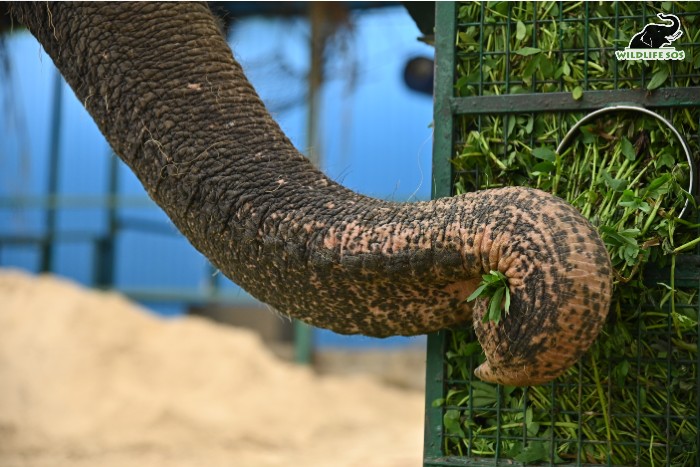
Elephants’ intelligence extends beyond their social bonds and problem-solving skills. Their level of ingenuity is truly awe-inspiring. An example of their impressive intelligence is opening the locks of their enrichments. Elephants at our centres have been observed using their incredible strength, mindfulness and cognitive ability to manipulate locks and access the rewards inside their feeder enrichments. Their understanding of cause and effect, and keen observation skills, allows them to analyse and overcome obstacles.
Compassion towards their Companion
In a touching example of empathy and assistance, Kalpana shows her protective nature towards her blind companion Holly at the Elephant Hospital Campus in Mathura. Kalpana’s role in guiding Holly through their surroundings is vital. Through vocalisations, Kalpana alerts Holly about the presence of other animals or any hurdle in her path, ensuring her safety. This anecdote highlights elephants’ ability to understand the needs of their fellow herd members and their inclination to provide support and care.
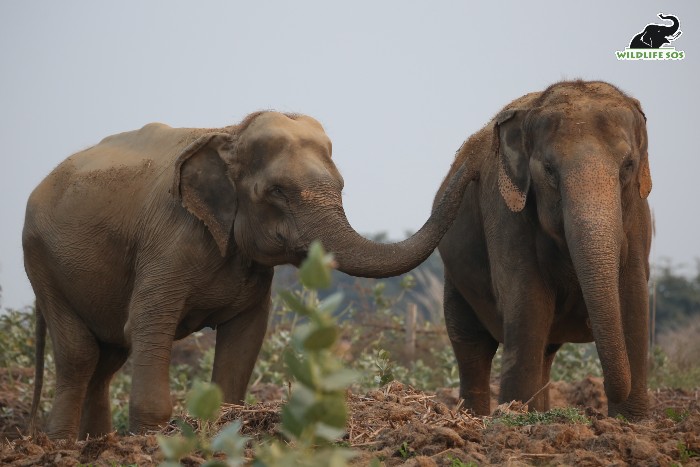
Sense of Self-awareness
Elephants exhibit signs of self-awareness, a trait shared by only a handful of animal species. Suzy, being blind and toothless, is conscious of her physical abilities and remains cautious while walking around in her enclosure. Using her senses adeptly, she has been able to understand the dimensions of her vast enclosure very well. The caregivers have also noticed how she can competently separate the hard food in her meals to consume only the soft and edible ones.
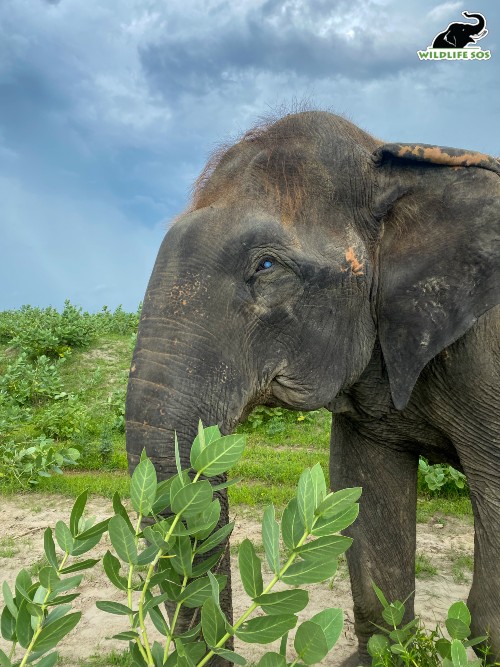
Communication and Vocalisations
Elephants possess a sophisticated communication system that includes a wide range of vocalisations, infrasounds, and body language. They use distinct calls to convey various messages, such as warnings of danger, greetings, and coordinating group movements. Rajesh at ECCC often trumpets to indicate that he is aware of his caregiver bringing him food. Elephants also display sensitivity and care with soothing gestures of touching and caressing each other with their trunks.
Elephants are known to demonstrate deep mourning when a loved one dies, such as gently touching and caressing the deceased’s head and pausing in silence for several minutes at the location of their passing, even years after their death. At our centre, Suzy let out loud trumpets when her close and protective companion Asha passed away. Suzy stood beside Asha in her last moments, hoping for Asha to rub her trunk along Suzy’s face as she would often do. For Suzy, Asha had been her guardian angel who would always accompany Suzy and alert her with sounds of caution in case of any obstacle in her path. The complexity of their communication indicates the high levels of awareness and understanding that exist in their social interactions.
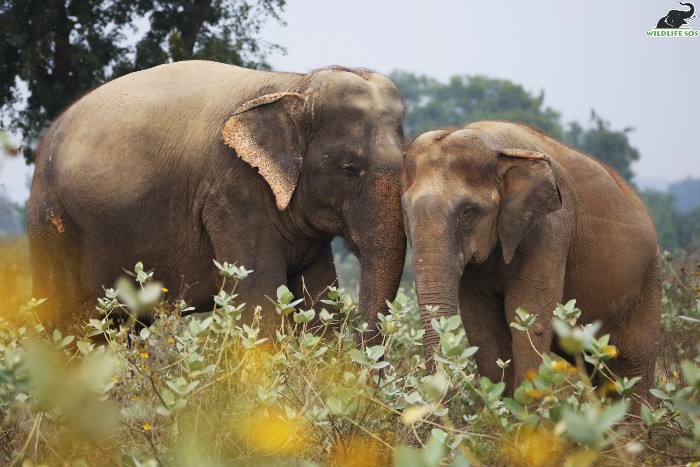
The broad mental aptitude of elephants reinforces the notion that intelligence is not solely the domain of humans. Their social interactions, extraordinary memory, problem-solving skills, self-awareness, and communication capabilities highlight their cognitive prowess.
As we continue to study and learn more about the cognitive capacities of elephants, it becomes increasingly clear that these intelligent beings deserve our respect and protection. By appreciating their cognitive abilities, we can foster a greater sense of empathy and advocate for their preservation in the wild, ensuring a future where elephants can continue to thrive. Yet, several elephants face abuse and neglect to serve the purpose of begging, as circus entertainers and as rides for people to boost the tourism industry. The lack of ethical considerations has consistently obstructed efforts towards conservation and elephant welfare. Wildlife SOS has rescued and rehabilitated several elephants from a life of torture and provided them with the care and attention that they need. To support and sustain our efforts towards these gentle giants, consider making a donation by clicking here.

